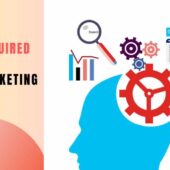The significance of a well-crafted corporate level strategy is immense in today’s fiercely competitive business world. Are you a seasoned executive? Or a budding entrepreneur? Or a corporate professional who wants to enhance career prospects? Irrespective of who you are, understanding and developing a robust corporate level strategy is essential for driving sustainable growth. This article explores the fundamentals of corporate level strategy, its benefits, and the best practices.
Table of Contents
ToggleWhat is a Corporate Level Strategy?
Corporate-level strategy is the comprehensive plan devised by senior management to steer the organization toward its long-term goals. It involves making strategic decisions at the highest level of the company. Some key areas include resource allocation, diversification, mergers and acquisitions, and market positioning across business units and markets.
Benefits of Corporate Level Strategy
Implementing a well-defined corporate level strategy offers the following advantages.
- Clarity and direction: Corporate level strategy aligns organizational goals with actionable strategies across business units. Alignment ensures every aspect of the business contributes to overarching objectives.
- Efficient resource allocation: Corporate level strategy optimizes the allocation of capital, talent, and other resources to maximize returns and drive profitability. It ensures resources are allocated strategically to areas that yield the highest value.
- Risk management: Besides diversifying the business portfolio, it reduces exposure to market fluctuations and industry-specific risks. Companies can minimize the impact of unforeseen cases by spreading investments across business units.
- Innovation and adaptability: A robust corporate level strategy empowers organizations to capitalize on emerging opportunities. Promoting a culture of innovation and encouraging experimentation allows companies to stay ahead and drive continuous improvement.
“Unlock Success: Master the Art of Content-Level Strategy with eMarketEducation!”
Top 5 Corporate Level Strategies & Best Practices
Here are the 5 corporate level strategies and best practices to consider.
- Digital transformation: Embracing digital transformation is critical to thrive in the digital age. Digital technologies have revolutionized how companies operate, communicate, and engage with customers. Leveraging digital tools will help you enhance your marketing efforts. Investing in digital marketing courses can help you capitalize on the digital opportunities for enhanced success.
- Customer-centric approach: In today’s hyper-competitive market, putting the customer at the center of everything you do is essential for success. Adopting a customer-centric approach involves understanding your target audience’s preferences and pain points. Focusing on delivering value and building meaningful relationships can drive customer loyalty and increase retention rates.
- Data-driven decision making: Data holds immense importance in gaining insights into consumer behavior and market trends. Harnessing the power of data analytics can promote informed decisions and optimize marketing strategies. Investing in data analytics tools and training employees in data analysis skills can help you gain a competitive edge.
- Agile strategy execution: Traditional strategic planning approaches give way to agile methodologies, which emphasize flexibility and adaptability. Agile strategy execution involves breaking strategic initiatives into smaller, manageable tasks or projects.
- Sustainability and corporate social responsibility (CSR): Integrating sustainability and CSR into corporate strategy is no longer optional in an increasingly socially and environmentally conscious world. Embracing sustainability initiatives enhances brand reputation and customer loyalty.
“Empower Your Corporate or Business Strategy with Cutting-Edge Best Digital Marketing Training Today!”
Bottom line:
Developing a comprehensive corporate strategy is essential to thrive in the digital age. Investing in digital marketing courses and upskilling in digital marketing techniques can further enhance your ability to capitalize on the opportunities presented by the digital revolution. Embracing these strategies and best practices will help you achieve a sustainable competitive advantage.






